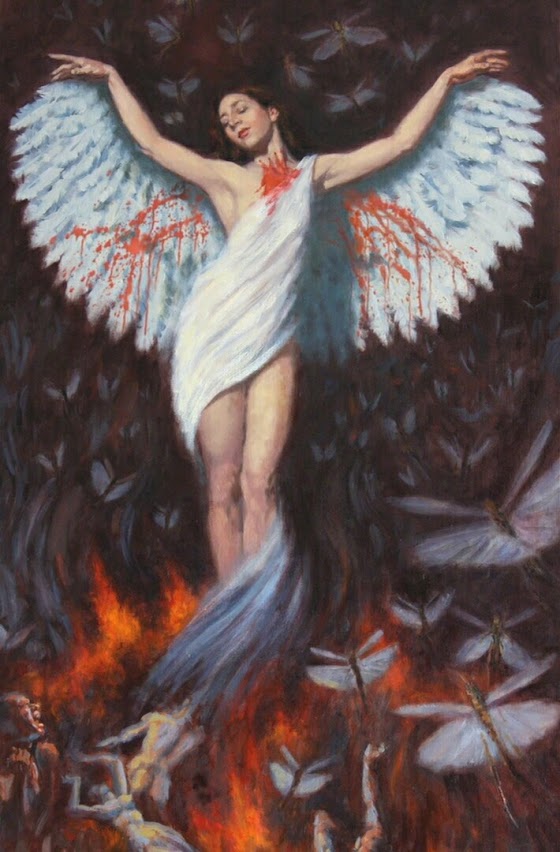This is an Austrian comedy made in 1984. The use of the word "Dirndl" in the
title makes it sound like it's connected to the Bavarian erotic comedies of
the 1970's, which I've been reviewing over the last two weeks. Nothing could
be further from the truth. The film takes place in southern Austria, near the
Wörthersee, far away from the Dirndl films which take place in the border area
between Bavaria and Tirol (north-west Austria).
While watching the film today I was confused. I couldn't understand what it
was about. What I mean is, I understood what was happening, but none of it
made sense to me as a narrative. It starts with a couple having sex in a
fitness centre after hours. Their clothes are stolen, so they have to leave
naked. The man breaks into a villa, leaving the woman behind, but we never see
her again. Someone comes home, so the man hides under the bed while a couple
have sex on the bed above him. It turns out that the man on the bed is the
women's lover, so he has to hide under the bed when the husband comes home.
The two naked men under the bed shake hands and make friends. That's probably
the only part of the film that I found at all funny.
The first man steals the only clothes he can find, a Dirndl outfit. He's
arrested by a gay policeman. After being released he visits a doctor to get
help with a problem. His penis is too long, so he wants part of it to be cut
off. Huh? After this we don't see the man any more. The film is now
about the doctor, who has a ridiculous stutter, picking up girls
despite being fat and ugly.
I sympathise with stuttering. My father stuttered all his life. My younger son
stuttered as a child and needed treatment into his teens. But the doctor's
stutter is just stupid. He can only talk when he slaps himself on the back of
his neck. It was so annoying that I had to stop watching. I took a short
break, and I read a synopsis of the film on Wikipedia. That confused me even
more. It was like it was another film. Wikipedia wrote about two men who
weren't in the film, doing things that had no connection to what I'd see in
the first half hour. After having half a glass of Sherry to strengthen my
nerves, I continued with the film.
The doctor disappeared from the film, thankfully, and there were silly scenes
about an actress and a prostitute who lived opposite one another and got mixed
up because of their names, Eva and Evi. Eventually, the two men mentioned in
Wikipedia were introduced, at the 55 minute mark.
What I find annoying is the film's structure. There's a certain logic to it,
but I still find it frustrating. It goes like this:
Person A is the main character. Then he meets person B. Person A disappears
from the film without explanation, and person B becomes the main character.
Person B meets person C. Person B disappears from the film, and person C
becomes the main character. And so on.
What's the director trying to say? I have no idea. Is it an experimental film
or just a poorly written film? Probably both. The film is junk. I almost gave
the film two stars (poor). The only thing in its favour is the occasional
nudity, but there's not even enough nudity to make it worth watching. One star
(awful) is the rating it deserves. There's no reason for anyone to watch this
film.
I almost forgot to mention: the title means "Dirndl hunt on the Wörthersee",
which makes no sense in the context of the film. In America it was called
"Bring the little pigs", referring to a scene with a fancy dress ball where
women dress up as pigs. Weird. Is this a local custom in southern Austria? I
hope so, because if it isn't, the film is just being totally stupid.




















































